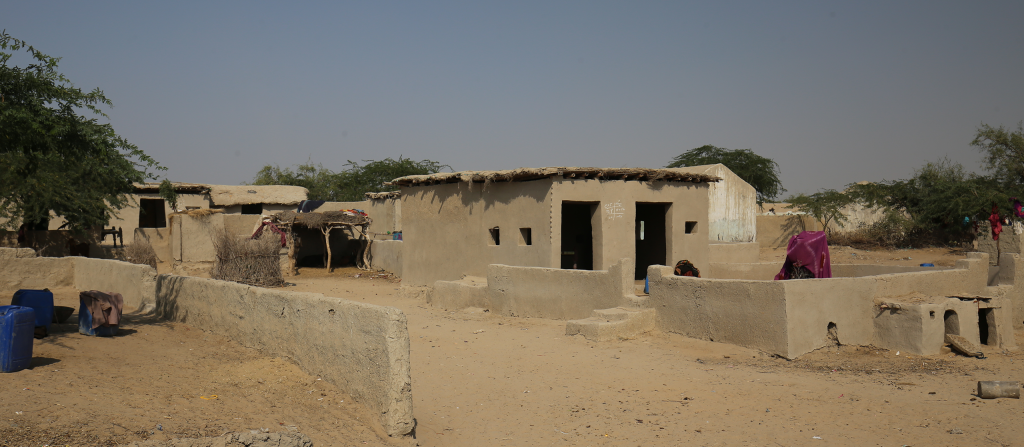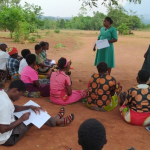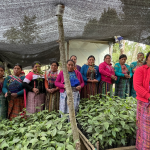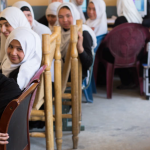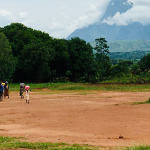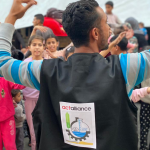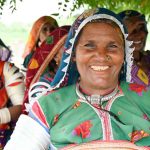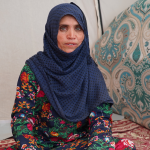By Palwashay Arbab and Salman Rashid, Community World Service Asia
Umerkot’s Story
Long before the dreaded phrase ‘climate change’ hit the world, Umerkot—a district in the Sindh province of Pakistan—was blessed with regular rains and seasonal crops grew. But since the mid-1980s rainfall has been irregular, with a couple of good years only every five or six years. Of late, the good years have become rarer and rarer. For the people of Umerkot, drought is not only a total lack of rain, but also untimely rains that cause seed to wither away without sprouting.
Farmers who could be called prosperous in the desert setting only five decades ago, have been reduced to sharecroppers who migrate seasonally to the irrigated parts of the district to work for cash. Others became day labourers on construction sites and in factories in bigger cities in the province. But labour is irregular and those who have found daily work are fortunate. At home, hunger and unmet basic needs have stalked their loved ones.
In the past four decades, migration in the face of drought has been a regular feature for desert communities. Because of natural disasters, including climate change, they have suffered huge losses in terms of crops, livestock and sometimes even human lives. In this context, mitigation strategies are necessary—to build resilience to the worsening conditions.
Narsingh
Narsingh, about 80 years old and completely worn out by the hard desert life, calls Umerkot home. He remembers the good days when rains fell as they had always fallen in July. In anticipation, everyone would sow their guar beans, millets and mung seeds two weeks earlier. Seeds would sprout from the rain drenched sand. In those days, an acre rendered as much as 1,600 kilograms of guar and about 800 kilos of millets, says Narsingh. He raises his eyes heavenward as if silently petitioning God to bring back those days.
But in the 1990s, droughts became more common. There were years when no rain fell at all or when it came too late. For desert farmers, late rains are the same as no rain at all because sowing more than eight weeks earlier means very little sprouting.
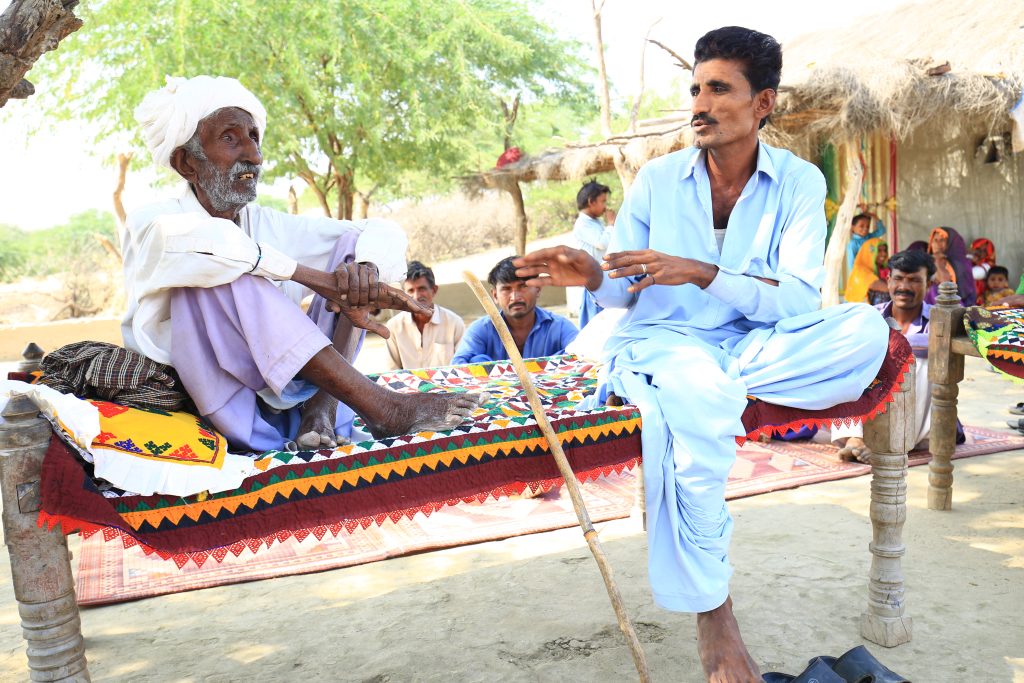
In his 30s, Jethamal, Narsingh’s son, has only heard of the good times. He has only known erratic rainfall, a far cry from the regular and timely ones that the elders speak of. He has never harvested more than 400 kilograms of millets from an acre.
In the old days, Narsingh’s generation was able to keep enough of the harvest for the family to eat, with plenty left to sell in local markets. The idea that farmers would have enough to sell for cash is an alien though. Now, says Jethamal, area farmers don’t have enough to last more than two or three months.
“The year 2019 was good with timely and sufficient rains,” recalls Jethamal. The crops were coming along nicely but then the locust attack occurred and, he says, there was not enough ground to walk without crushing dozens of them with every step. According to the United Nations, the hotter temperatures caused by climate change help to create more damaging locust swarms.
Rains fell on time and the harvest was reasonable in 2020. But in 2021, the month of Savan (mid-July to mid-August) went dry. The deluge came after mid-September when it was too late for the seed sowed three months earlier to sprout.
As climate reality hits…
Many areas of southern Umerkot have been affected by climate change, particularly by droughts for many years now. This has hugely impacted the communities’ food security, health and increased overall poverty. Community World Service Asia, with the support of partners like PWS&D, has selected specific areas which are recorded at IPC level 4, which indicates an emergency situation for food security and livelihoods.
Most families in these areas have been unable to cultivate their lands due to lack of resources. Now, with the support from CWSA and PWS&D, these drought-hit communities have been able to cultivate lands using the knowledge and resources they have gained through the project, as well as with the help of rains in 2022.
PWS&D and Canadian Foodgrains Bank are supporting the HERD (Humanitarian Assistance, Early Recovery and Development) project implemented by Community World Service Asia. This project is providing families with food packages, livestock and seasonal seeds for cultivation, and training for farmers. In addition, women artisans are enhancing their embroidery skills and learning product development and marketing to help diversify income streams and reduce dependency on agriculture, which is subject to increasingly erratic weather patterns.
*This story was first printed in the Spring 2023 issue of Presbyterian Connection newspaper.
